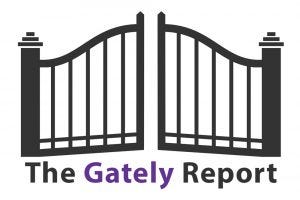The Gately Report: SentinelOne Channel Partners Getting New Specializations, More in Months Ahead
Also, thousands of PayPal users' accounts have been accessed through credential stuffing attacks.

This year, SentinelOne channel partners will get new specializations, authorized training centers and an authorized support partner program.
 That’s according to Ken Marks, SentinelOne’s vice president of worldwide channels. He gave us a sneak peek of what SentinelOne has planned for channel partners in the coming months.
That’s according to Ken Marks, SentinelOne’s vice president of worldwide channels. He gave us a sneak peek of what SentinelOne has planned for channel partners in the coming months.
In November, SentinelOne was named one of the fastest-growing companies in North America by Deloitte Technology Fast 500 for the fourth consecutive year.
Cloud, Identity Specializations
SentinelOne’s new year starts Feb. 1. It’s in the process of closing out the year strong, Marks said.

SentinelOne’s Ken Marks
“But we’re also doing all the work on budgeting and looking at the areas of the partner program that we want to improve upon and expand upon,” he said. “One of the biggest areas is going to be around the concept of specializations. Not new in the industry, but as we really build out our Singularity platform, and we look at cloud and we look at identity, we’re going to have specializations around those technologies and those services. And what the partners will get there is training for their practitioners that do identity and do cloud, and help them stand up a business or a practice if they’re not in it today, but want to. And, of course, that will come with incentives and normal benefits to a partner for building out that practice. But you’ll see cloud and identity as the first two.”
More Face-to-Face Training
Also in the months ahead, SentinelOne will launch authorized training centers, Marks said. Moreover, It will have authorized training partners who have training as a piece of their business.
“We’ll open that around the world, predominantly internationally, so we can get local language coverage and we can get more face-to-face type training in the different countries,” he said. “And we’re at the point now where it’s time to launch an authorized support partner program. So you’ll see that as a specialization in our program where partners that do have support practices will have the opportunity to provide level 1, level 2 support on behalf and with SentinelOne for their customers.”
Scroll through our slideshow above for more from SentinelOne and more of the week’s cybersecurity news.
Want to contact the author directly about this story? Have ideas for a follow-up article? Email Edward Gately or connect with him on LinkedIn. |
About the Author(s)
You May Also Like


